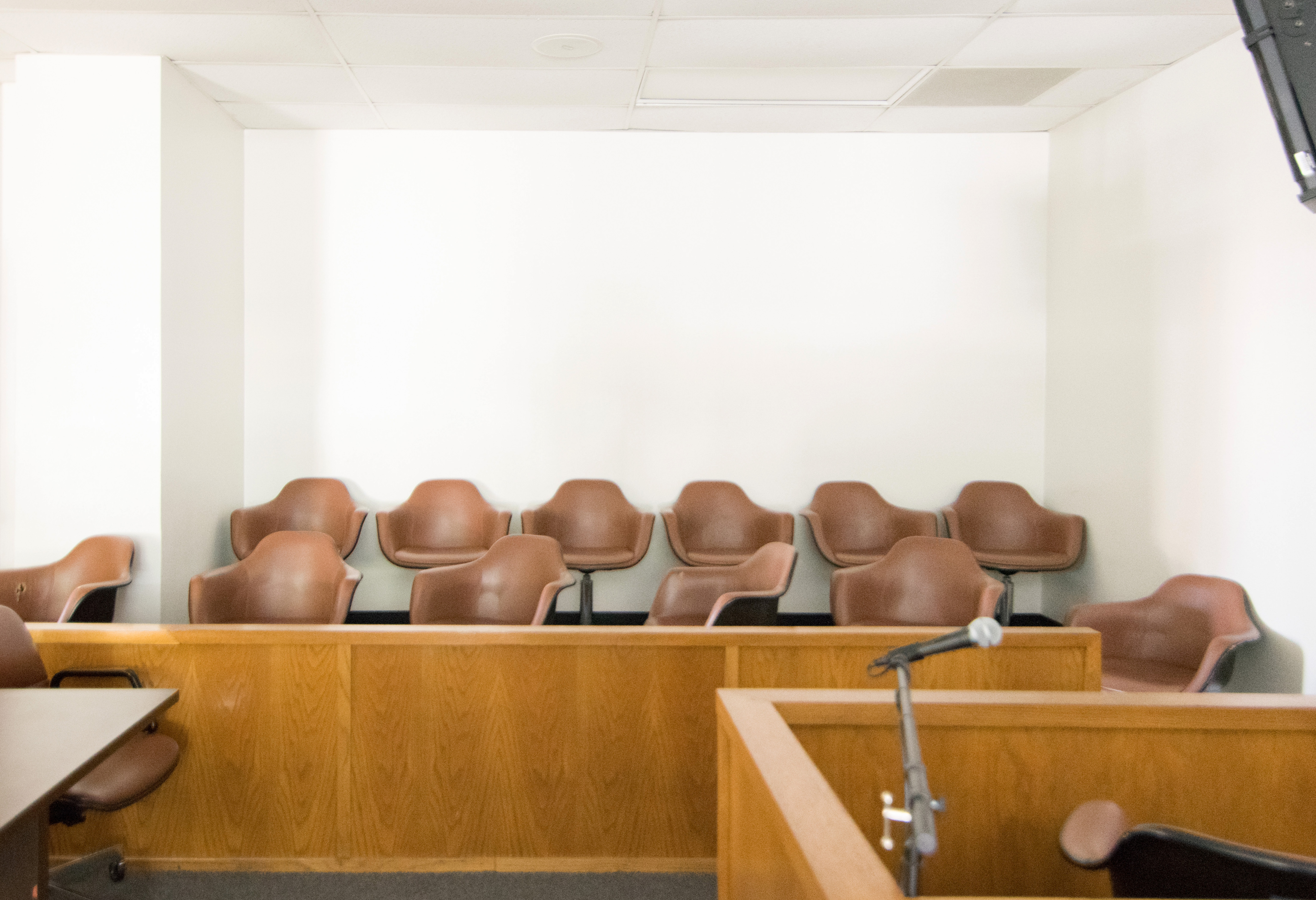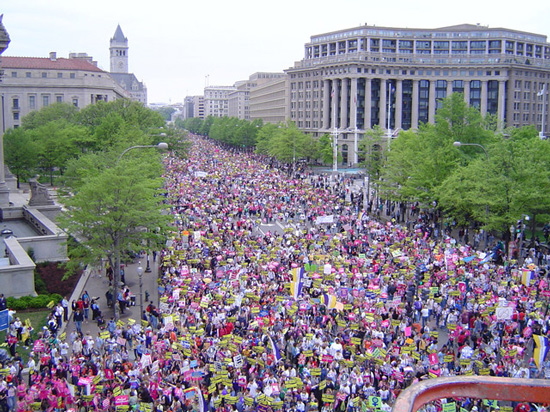In 1981, James Kirkland Batson, an African-American man from Kentucky, was charged with second-degree burglary and receipt of stolen goods. During voir dire (jury selection), the prosecution struck down all four potential black jurors using peremptory strikes, which allow lawyers to disqualify potential jurors without providing objection or justification. Though the defense and prosecution both get a limited number of strikes, the prosecution had enough to ensure Batson’s jury would be composed entirely of white jurors.
Batson motioned to dismiss the original jury and form a new one. He argued that the prosecution used peremptory strikes to discriminate against potential black jurors, violating the 14th Amendment’s Equal Protection Clause. The trial court denied his motion, and the jury convicted him on both counts.
Batson appealed to the Supreme Court, which ruled in his favor in a 7-2 decision in 1986. Justice Lewis F. Powell Jr.’s majority opinion noted that dismissing African-American jurors due to race implies that they cannot decide a case fairly. The Court established criteria for proving peremptory strike discrimination by prosecutors. First, the defense must show that the events surrounding the trial suggest discrimination. The prosecution then provides their reasoning for the strike before the judge decides whether the prosecutor intended to discriminate against a juror based on race.
Batson v. Kentucky was only one small step in combating discrimination in jury selection. Prosecutors can still easily hide their efforts to exclude minorities, allowing for rampant discrimination in voir dire. Judges regularly allow prosecutors to strike black jurors for perceived lack of intelligence, education, or employment, as well as having children out of wedlock, relying on government assistance, or living in high-crime areas. Lackluster enforcement enables abuse of peremptory challenges.
To understand why peremptory challenges exist, we must first consider judicial process theory. Prosecutors, representing the state or federal government, are supposed to discover the truth, and thus should look for impartial jurors. Defense lawyers, on the other hand, aim to create a jury that will view their specific client favorably. Peremptory strikes allow defense attorneys to dismiss potential jurors based on implicit biases. This may look as though peremptory challenges bias the jury in favor of the defendant. However, the prosecution is supposed to check the defense by using their own strikes to eliminate jurors who may be biased to favor the defendant, yielding a balanced final jury. This theory requires prosecutors to be truth-seekers and defense lawyers to be ethical. Unfortunately, we do not live in this idealistic world.
In Foster v. Chatman (2015), the plaintiff motioned to review the prosecution’s notes, as the prosecution had used peremptory strikes on all four qualified black juror candidates. The prosecution’s notes stated that under no circumstances should a black juror be selected. The Supreme Court applied Batson and ruled that there had been purposeful discrimination during voir dire.
In City of Seattle v. Erickson (2017), prosecutors used a strike against the only black juror, leading Erickson to object on the grounds that it was racially motivated. The presiding judge saw no indicators of racial discrimination and struck down Erikson’s objection. Erikson then brought the case to the Washington State Supreme Court. In a unanimous decision, Justice Susan Owens wrote that the court had repeatedly noted that “Batson protections are not robust enough to effectively combat racial discrimination during jury selection.” The Washington Supreme Court mandated that trial courts provide explanation from the prosecutor when a sole member of a racial group is struck down from a jury. The strike must then be analyzed to determine if it was racially motivated.
Batson v. Kentucky, Foster v. Chatman, and City of Seattle v. Erikson are all examples of the prosecution intentionally creating juries that will convict based on racial biases. For defense lawyers, a famous example is the Howard Beach case, wherein a black man was racially targeted and attacked by three white teenagers in Queens, New York. The defense sought to eliminate potential black jurors, and was accused of discrimination by the prosecution. While the Supreme Court has not ruled on discriminatory peremptory strikes used by defense attorneys, some states have expanded the Batson decision to limit challenges made by the defense.
Batson forbids prosecutors from using peremptory challenges on the assumption that black jurors cannot judge a case against another black person impartially. Similar reasoning can be used to hold defense attorneys accountable. Consequently, the trial judge in the Howard Beach case ruled that the defense was using peremptory strikes to discriminate against prospective black jurors, and curbed the defense’s remaining challenges.
It is clear that peremptory strikes act as a barrier to a fair trial. The question then becomes how to reform them. Common suggestions include increasing the time allotted for voir dire, allowing more thought-provoking questions for jurors, and mandating that juries represent the racial demographics within the state.
These solutions are all either ineffective or infeasible. To determine the amount of time necessary for a fairer voir dire, various studies would need to be conducted. But the studies’ applicability would not be ubiquitous. Some cases require more time for voir dire than others. The O.J. Simpson trial, for instance, needed more time than typical homicide cases because of Simpson’s fame. Prosecutors needed to ensure that jurors would not acquit him simply because of his reputation. Meanwhile, defense lawyers had to consider the crime’s racial element, as the victims were white. Defense lawyers needed to be sure potential jurors would not be influenced by any adverse feelings about the couple’s biracial relationship.
Some supporters of peremptory challenges believe that abuses are the result of questioning limits. Judges and attorneys ask yes-or-no questions without allowing jurors to elaborate, meaning lawyers have difficulty gauging potential jurors’ biases, and resort to stereotypes to fill any gaps created by their brief answers. This argument postulates that lawyers will not use peremptory strikes inappropriately if they are allowed to ask more substantive questions. It assumes that lawyers discriminate due to lack of information, and that deeper questions can better reveal implicit biases. However, this would require more preparation for both sides, relative to discriminating with peremptory challenges, which takes very little time. For lawyers who do not want to invest a large amount of time on voir dire, discriminatory peremptory challenges would remain a shortcut.
Finally, creating juries that are proportional to state demographics would require mobilizing people of color to participate in jury duty. As explained in my previous installment, jury-related financial hardship disproportionately affects minorities. People of color often seek exemptions or simply do not show up to court. Considering the lackluster compensation for jury duty, and the time that cases may require, it is no wonder these barriers deter people from participating. Additionally, because these groups see increased residential mobility, it is extremely difficult to mail jury summons due to changing addresses. According to a study conducted by the Detroit U.S. District Court, many summons sent to predominantly minority areas come back to the court as undeliverable or do not come back at all. These factors, among others, prevent courts from creating juries that are representative of their state.
Having attempted to demonstrate that common proposals to reforming peremptory strikes would be ineffective or unfeasible, I conclude that it would be most efficient and fair to eliminate peremptory strikes altogether. As someone interested in law school, I may be going against future self-interest. But peremptory strikes simply cannot be amended in a sufficient way. They are to the judicial process what gerrymandering is to the political process–abused by each side and harmful to procedural integrity. They might be convenient for those using them, but they allow attorneys to disregard morality and justice just to win cases. I do not want to be that kind of lawyer, nor do I believe that lawyers should engage in such unfair practices. They must be tools that ensure justice, and as long as peremptory strikes exist, the meaning of justice remains at stake.



